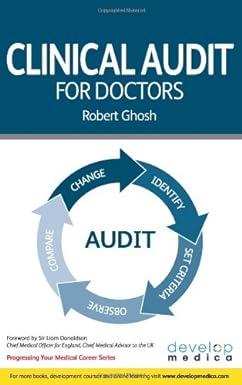Question
At the beginning of 2018, Ace Company had the following portfolio of investments in available-for-sale debt securities (all of which were acquired at par value):
At the beginning of 2018, Ace Company had the following portfolio of investments in available-for-sale debt securities (all of which were acquired at par value):
| Security | Cost | 1/1/2018 Fair Value |
| A | $20,000 | $25,000 |
| B | 30,000 | 29,000 |
| Totals | $50,000 | $54,000 |
During 2018, the following transactions occurred:
| May 3 | Purchased C debt securities at their par value for $50,000. |
| July 1 | Sold all of the A securities for $25,000 plus interest of $1,000. |
| Dec. 31 | Received interest of $7,600 on the B and C securities. Additionally the following information was available: |
| Security | 12/31/18 Fair Value |
| B | $29,000 |
| C | 52,500 |
Required:
| 1. | Prepare journal entries to record the preceding information. | ||||||||||||||||||||||||||||||||||||||||||||||||||||
| 2. | What is the balance in the Unrealized Holding Gain/Loss account on December 31, 2018? | ||||||||||||||||||||||||||||||||||||||||||||||||||||
|
3. What justification does the FASB give for its treatment of unrealized holding gains and losses for available-for-sale securities? FASB requires unrealized gains and losses for available-for-sale securities to be reported as a component of other comprehensive income because:
|
Step by Step Solution
There are 3 Steps involved in it
Step: 1

Get Instant Access to Expert-Tailored Solutions
See step-by-step solutions with expert insights and AI powered tools for academic success
Step: 2

Step: 3

Ace Your Homework with AI
Get the answers you need in no time with our AI-driven, step-by-step assistance
Get Started


